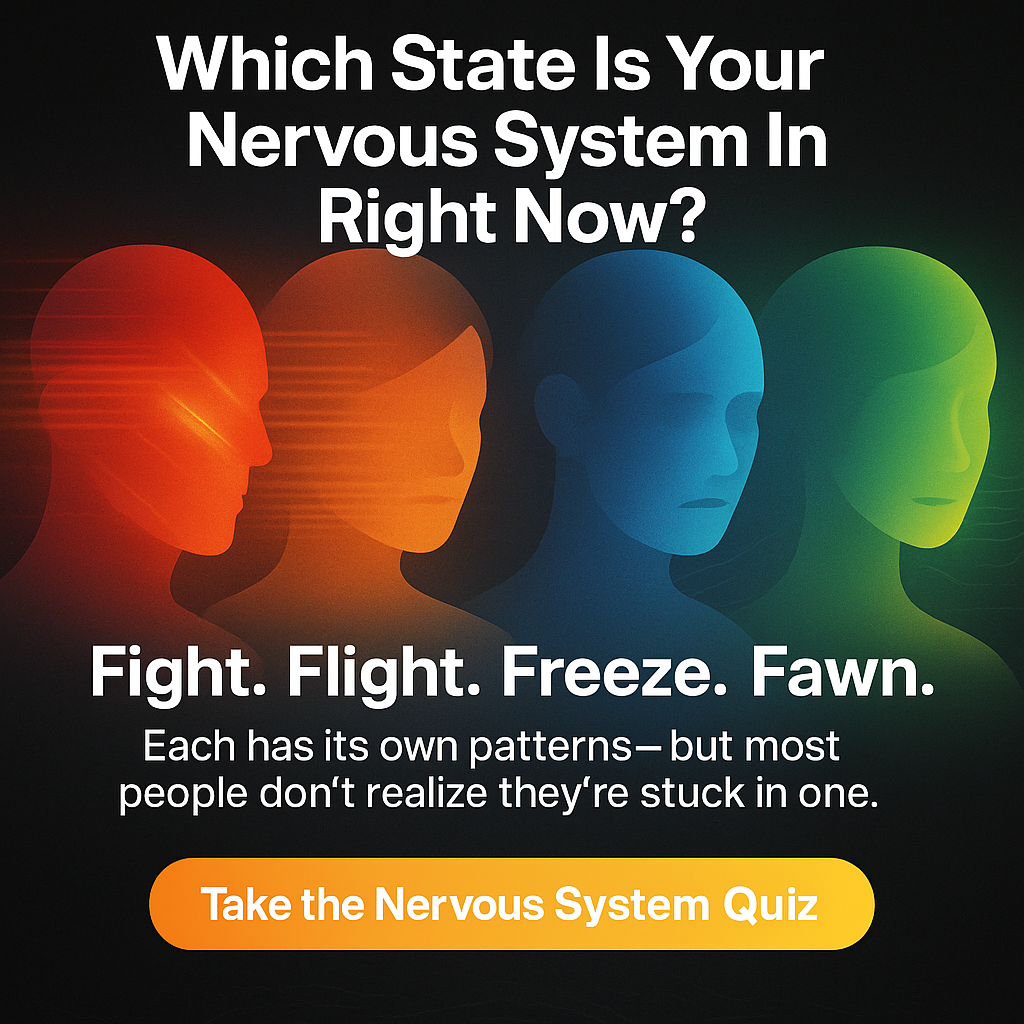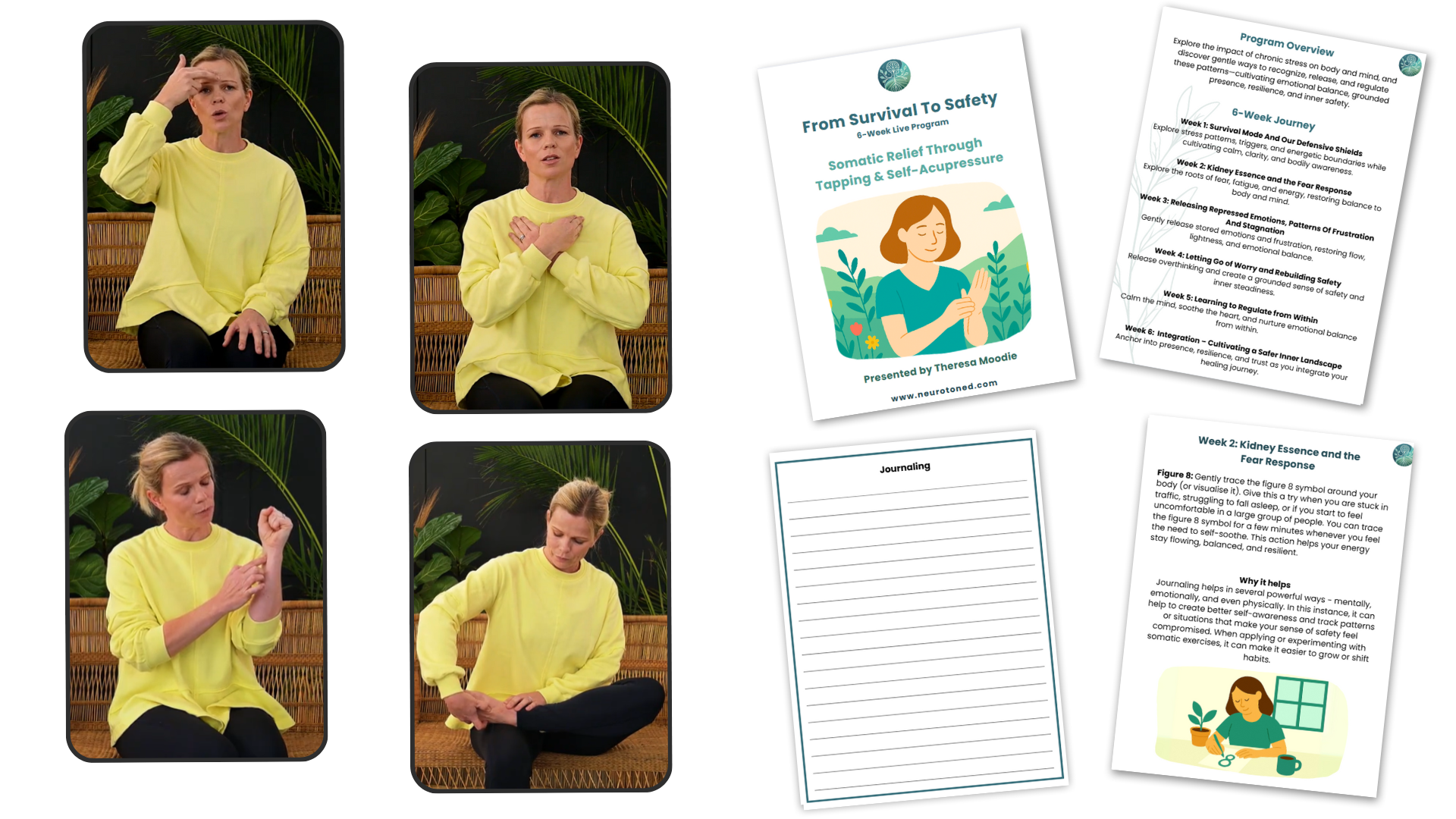
How to Eat to Feel Safe: Nervous System-Friendly Meals
If your body often feels tense or your stomach tightens when you eat, you’re not alone. Many people living in a chronic stress state struggle to digest food or even feel hunger. Your nervous system may not feel safe enough to rest, so it keeps you in survival mode.
Before we go further, take a moment to explore how your stress loop works through the Stress Loop Quiz. It’s a quick way to see where your nervous system might be stuck and what gentle steps could help.
Quick Answer
Eating in a nervous-system-friendly way means focusing less on what you eat and more on how and when. Choose whole, warm, easy-to-digest foods, eat slowly, and create safety through rhythm and presence. Meals that help your body feel safe are predictable, nourishing, and eaten in calm conditions, not chaos.
Why Stress Makes Eating Hard
When your body senses threat—emotional or physical—digestion slows. Blood flow moves away from your gut and into your muscles so you can fight, flee, or freeze. That’s why you might feel nauseous when anxious or lose appetite during conflict.
Safety signals (like soft lighting, slow breathing, or warmth) tell your body it’s okay to digest again. Pairing these with gentle foods builds a foundation of internal calm.
If this feels familiar, you might also find it helpful to read a gentle, 10-minute reset you can repeat daily or explore the connection between psychological and physical pain.
What Nervous-System-Friendly Meals Look Like
1. Warm and Cooked Over Raw
Soups, stews, porridge, roasted vegetables, and warm grains often feel safer to a dysregulated body than cold salads or processed snacks. Warmth signals comfort and helps digestion.
2. Steady Blood Sugar = Steady Mood
Skipping meals or eating mostly sugar and caffeine can keep you wired. Try simple combinations like:
- oatmeal with nut butter and banana
- rice with eggs and sautéed greens
- baked sweet potatoes with olive oil and herbs
These help stabilize blood sugar, which reduces adrenaline spikes.
If adrenaline surges are common for you, this piece on stopping adrenaline spikes naturallymay also help.
3. Gentle Proteins and Fats
Eggs, fish, lentils, and avocados help your body rebuild and balance hormones. Choose what feels digestible, not what’s trendy.
4. Eat With Calm Rituals
Even five slow breaths before eating can shift your body from “protect” to “digest.”
- Sit down fully.
- Notice the smell.
- Relax your shoulders.
- Take your first bite slowly.
These micro-pauses signal safety faster than supplements ever could.
5. Consistent Timing, Not Perfection
Your body loves rhythm. Try to eat at roughly the same times each day. Regular meals remind your nervous system that nourishment is predictable.
You can pair this with micro-breaks that calm the body mid-day.
A 7-Day Gentle Eating Plan
This isn’t a “diet.” It’s a way to practice safety through food.
Day 1–3: Focus on warmth. Eat cooked breakfasts and soups.
Day 4–5: Add mindful pauses. Breathe for 30 seconds before each meal.
Day 6: Create a soothing dinner space—soft light, slow music.
Day 7: Reflect on which meals helped you feel safest and most settled.
When Eating Feels Like Too Much
If you notice resistance, it’s okay. Trauma can make nourishment feel unsafe. Start smaller: a few sips of warm tea, a spoonful of soup, gentle chewing. Let your body relearn safety at its own pace.
For deeper support, you may enjoy reading how to reset your nervous system after trauma.
Common Sticking Points
“I forget to eat.”
Set soft reminders. Pair meals with daily cues like finishing work calls or sunrise.
“I feel bloated or uncomfortable.”
Start with smaller portions and chew longer. Your gut may be reawakening.
“I crave sugar constantly.”
It’s often a sign of fatigue, not failure. Add more slow carbs and rest instead of cutting yourself off.
“I can’t eat when I’m anxious.”
Sip something warm first. Even a few bites count as progress.
FAQs
1. What are nervous-system-friendly foods?
Warm, cooked, whole foods that are easy to digest—soups, grains, soft vegetables, and gentle proteins.
2. Does caffeine affect the nervous system?
Yes. It can increase adrenaline and make calm harder to reach. Consider reducing or pairing it with food. You may want to read this article to know about some calming alternatives to coffee.
3. Are there specific nutrients for calm?
Magnesium, B vitamins, and omega-3s may help the nervous system function smoothly.
4. How often should I eat?
Three balanced meals a day with snacks if you get lightheaded or anxious between meals.
5. Can emotional safety affect digestion?
Absolutely. Feeling safe helps your vagus nerve activate digestion.
6. What if I have digestive issues already?
Try bland, warm foods and gentle pacing. If symptoms persist, consider talking with a qualified professional.
More Gentle Reads
Disclaimer: This article is educational and not medical advice. If you have health concerns, consider speaking with a qualified professional.
Discover Your Vagal Tone
Find out how dysregulated your nervous system is and get your personalized roadmap to feeling calm, energized, and in control


